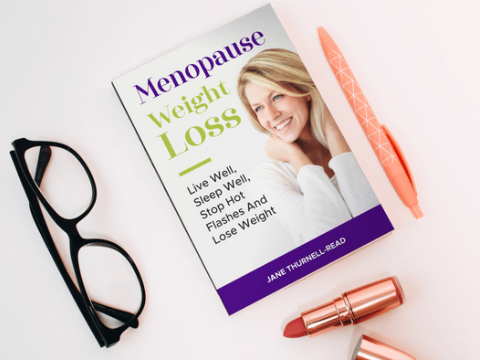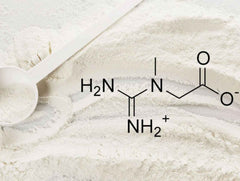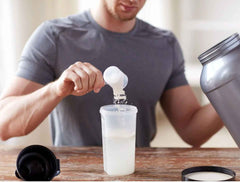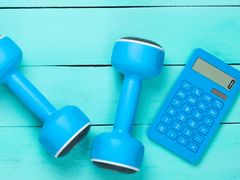6 Simple Dietary Changes To Help You Through The Menopause

We know that following a healthy diet can help reduce your risk of the chronic diseases associated with ageing (diabetes, heart problems, cancers, etc.). What is not so well known is that a healthy diet can help you have a much more comfortable menopause than people who eat a lot of meat or fast food.
It wasn’t until I came to research my book “Menopause Weight Loss: Live Well, Sleep Well, Stop Hot Flashes & Lose Weight” that I became aware of how diet affected menopausal symptoms. It also explained to me why I had had a largely uneventful menopause myself. I was vegetarian (now vegan), when I went through menopause, so I was already doing most of the changes I recommend here.
Check out these six changes to find out what you need to do. They are all backed up by scientific research about what works. They are not just the views of influencers or people with something to sell.
1. Eat more fruit and vegetables
A study of 400 postmenopausal women in Iran divided the women into three groups according to their normal diet:
- Eating a lot of vegetables and fruit
- Eating mayonnaise, liquid oils, sweets, and desserts
- Eating solid fats and snacks
The researchers found that those women following a diet with a lot of fruit and vegetables had fewer menopausal symptoms overall than the other two groups.
Six researchers wrote in Europe PMC:
“It has been observed that greater adherence to the MedD [Mediterranean Diet] in menopause is associated with reduced risk for becoming overweight/obese, better cardiometabolic profile, and an improvement in menopausal symptoms.”
2. Eat more soy products
A study, published by the North American Menopause Society in the journal Menopause found a plant-based diet rich in soy reduces moderate-to-severe hot flushes (often referred to as 'hot flashes' in the US) by 84%, from nearly five per day to fewer than one per day. During the 12-week study, nearly 60% of women became totally free of moderate-to-severe hot flashes. Overall hot flushes (including mild ones) decreased by 79%. The researchers concluded:
“The combination of a low-fat, vegan diet and whole soybeans (half a cup or 86 g) was associated with reduced frequency and severity of hot flushes and improved quality of life in vasomotor, psychosocial, physical, and sexual domains in postmenopausal women. During the 12-week study period, the majority of intervention-group participants became free of moderate-to-severe hot flushes.”
If this result was attributable to a drug, it would be hailed as a wonder drug!
The best sources of plant oestrogens are soya products and flax seed, also known as linseed. Soya products include soya beans (also known as edamame beans), tofu, tempeh, soya milk and soya mince.
Flax seeds have a tough outer husk. If eaten whole, they are likely to pass straight through you, so you won’t get any benefit. Most people eat it milled, so the husks are broken down. This allows the body to access the nutrients inside the seeds. Easy ways to take flax seed include adding a tablespoon of it to your morning cereal, adding some when you bake, sprinkling into yoghurt or mixing with mayonnaise for a salad or sandwich. It has a slightly nutty, bitter flavour. In large quantities this would be unpleasant, but in smaller quantities it is fine.
The value of flax seed is not just restricted to hot flushes. A study of Native American postmenopausal women found that regular consumption of flax seeds reduced their risk of cardiovascular disease as seen from lowered LDL-C (“bad cholesterol”) and total cholesterol levels.
Flax seed is also thought to be protective against breast cancer, so this is another reason to add flax seed to your diet. Flax seed is high in fibre, adding extra benefits to taking it. Make sure you have some fluids around the same time, as the flax seed will need water to swell up.
3. Eat more fibre
An Iranian study of 393 postmenopausal women concluded that women who ate higher-quality carbohydrate [low glycaemic index and containing lots of fibre] had fewer physical and psychological symptoms of menopause. Similar results were found in a study in Ghana.
4. Eat less sugar
Eating sugar can result in a spike in your blood sugar and then later a drop below normal level. Some research has suggested that hot flushes are linked to drops in blood sugar. Avoiding or limiting the amount of sugar you eat may help reduce the number of hot flushes you experience.
5. Drink less caffeine
A study analysed questionnaires from 1,806 women, who had expressed concern about menopausal problems. The analysis showed that there was a statistically significant link between high caffeine consumption and greater vasomotor disturbance in postmenopausal women. Vasomotor disturbances are hot flushes and night sweats.
Another study also found that there was a link between a high consumption of caffeinated beverages and hot flushes.
6. Drink more water to lose weight
Water is really important to the body. It can also help you eat less, particularly if you drink water before meals. Elizabeth A Dennis and colleagues conducted an experiment in which half the participants drank 500 ml (1.06 US pints) of water before meals. After 12 weeks weight loss was around 2 kg (4.4 lbs) greater in the water group than in the non-water group. This was a 44% greater reduction in weight over the 12 weeks for participants who drank water before meals. All the participants were middle-aged or older adults and followed a low-calorie diet for the 12 weeks.
This is a significant amount of additional weight loss for something that is cheap and easy to apply. I definitely suggest this is the first thing you change about your diet.
It’s also worth having a glass of water at other times. If you’re feeling peckish, try having some water, wait a while and then see if you are still hungry.
So, six simple ways to help you lose weight during the menopause. If you want to know more about natural ways to manage your menopausal symptoms, check out my book “Menopause Weight Loss: Live Well, Sleep Well, Stop Hot Flashes and Lose Weight” (eBook, paperback or audiobook).
Written by Jane Thurnell-Read
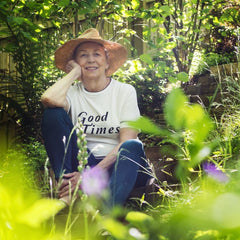
Jane loves writing books that are practical and easy to understand without dumbing down. She makes complex ideas seem simple and doable. Now in her seventies, Jane has enjoyed a varied career having been a university lecturer, a complementary therapist and an entrepreneur.
Jane is proud to say that she is currently fit, strong and healthy, but confesses that it didn’t happen by accident. "In my twenties I drank heavily (a quarter of a bottle of whisky a day) and smoked around 40 cigarettes a day. My diet consisted of toast, chocolate and orange juice. I learnt bit by bit how to change that and become happier and healthier."




